
Do you have a stinky cat? Cats are generally known for their cleanliness. Most are fastidious self-groomers, which keeps them free of dirt and odors. However, you may sometimes find that your cat smells bad.
Perhaps your cat smells like pee or has bad breath. Maybe the smell ise coming from its rear end. Although some cat odors are harmless or easy to fix, others can mean there is a health problem. Here's what to know about these different types of odors—and how to help treat them.
The best way to figure out why your cat stinks is to determine the source of the odor. Is your cat just stinky around the head or face? The rear end? Do you notice an odor on a particular part of the coat or does it seem to be all over? Asking these questions is the first step in addressing the problem with your stinky cat. Once you know where to odor is coming from, you will have a better chance of helping your cat.
There are several potential reasons for bad odors in cats. Once you can determine the location of the odor, you may be able to figure out the root cause. In many cases, your cat will need to go to the veterinarian. If you are unable to determine the source of the odor, it's still important to contact your vet.
Some people assume it's normal for cats to have bad breath or halitosis. However, consistent bad breath in cats is usually a sign of a health problem. Temporary mouth odors may be caused by something the cat ate.
Dental disease is probably the most common cause of bad breath in cats. Plaque and tartar buildup has a foul odor due to its bacteria content. The buildup can cause gingivitis and lead to gum disease, leading to tooth loss.
Ulcers, growths, and wounds in the mouth can develop an unpleasant odor if left untreated. Bacteria in the mouth can make these worse. These lesions may be caused by stomatitis or some other problem. Not only are these very bad-smelling, but they are usually also very uncomfortable for the cat. Mouth odor can also develop with severe kidney disease or unregulated diabetes.
If the foul odor is coming from the area around the base of the tail, chances are it's a problem around the anus. Seek veterinary medical care if you suspect the following conditions below:
Flatulence is normal in humans and animals, and cats are no exception. If your cat is passing gas frequently or it has an extremely bad smell, there may be a gastrointestinal problem.
Diarrhea can leave traces of loose stool around the rear end. It may be difficult for the cat to keep up with grooming if diarrhea keeps happening. If your cat has had diarrhea for two or more days, it's time to see a veterinarian.
Constipation causes stool to back up in the colon, making the cat strain to defecate. The hard, impacted stool might not pass, but sometimes liquid stool can pass. This can get on your cat around the rear end and tends to smell especially foul. This is a very uncomfortable situation for the cat and is sometimes a sign of a more serious health issue.
Anal glands are tiny sacs located just outside a cat's anus. They contain an oily, putrid, somewhat fishy-smelling fluid that is normally expressed during defecation. The fluid may also be released during acute fear, stress, or excitement (similar to a skunk's scent glands). In some cases, the anal glands can become inflamed, infected, or impacted. Some of the fluid can seep out, leaving a very foul odor on a cat that doesn't seem to go away. These cats may scoot and rub their rear ends or lick the anus obsessively.
Perianal fistulas are wounds in and around the anal area that have a tunnel-like structure. Though these are relatively uncommon in cats they can be very serious. Perianal fistulas as extremely uncomfortable and highly malodorous. They can lead to or occur in conjunction with other GI problems and often require surgical treatment.
If your cat's odor seems to be coming from all over the body, then it might be a problem with the skin and coat. A bath may help if your cat is noticeably dirty. However, if your cat looks relatively clean, there may be something deeper going on. Seek veterinary medical care to address the skin condition in your cat.
Skin infections can cause a cat to have a bad smell all over. If the infection is serious, the cat may have a thinning coat and visibly irritated skin. You may notice a greasy, smelly coating on your hands after petting a cat with a major skin infection. The odor is typically caused by bacterial or fungal overgrowth.
Wounds on the skin may stay hidden under the hair and become infected. This may cause a foul-smelling discharge (pus) to seep out of the wound. If your cat's body smells bad and you can't seem to find the source, try running your fingers through the coat and looking for wounds. If you find one, see your vet as soon as possible.
Ear infections are caused by an overgrowth of yeast, bacteria, or ear mites in the ears. Beside scratching and head-shaking, you may notice that your cat's ears smell horrible. Have a look inside to see if there is debris present as this is often a sign of an ear infection. Be sure to visit your vet soon to determine if an ear infection is present and to begin appropriate treatment.
Cat urine has a very strong ammonia-like smell that can smell even worse when there is a problem. Urinary tract infections can cause the urine to smell especially putrid. Incontinence or the inability to control urination can result in your cat smelling like urine or pee. If your cat smells like urine, it's important to see the vet to determine the cause.
If your cat is straining to urinate but not passing urine, this is an emergency. Your cat may be blocked. Urinary obstructions are extremely life-threatening. Bring your cat to the nearest open vet immediately.
Remember that cats are experts at masking illness. By the time you notice any signs of illness, things might be very serious. Be sure to contact your vet at the earliest signs of illness or if you detect an unusual odor that is not going away.
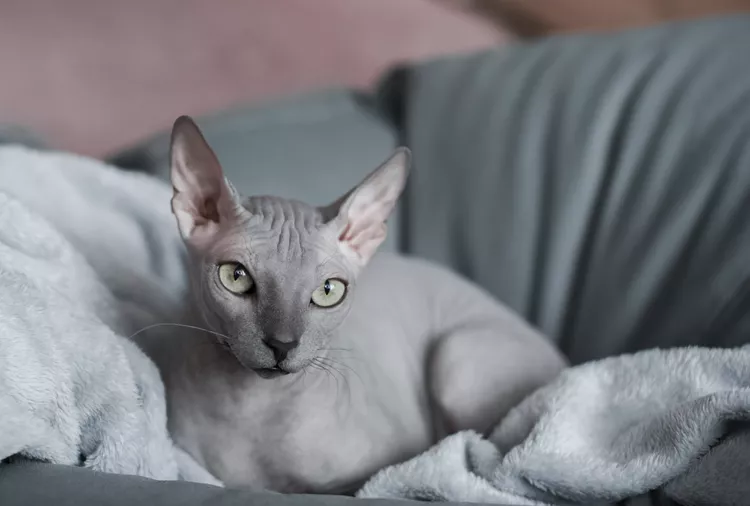
212 Hairless Cat Names For Your Beautifully Bald Feline
Discover the perfect name for your hairless cat with our list of over 200 creative and unique names. From quirky to classic, find a fitting choice for your beautifully bald feline companion.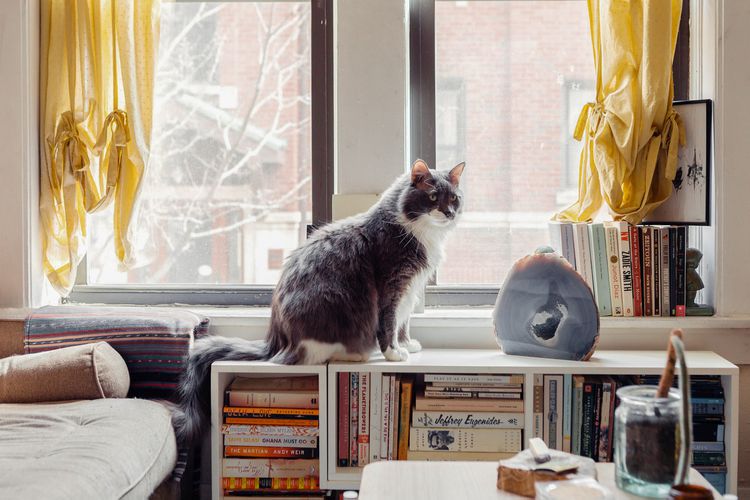
8 Things Your Cat Loves
Just like humans, cats can have a long list of things they like. Find out what cats love so you can keep your cat happy and healthy.
How to Tell If a Kitten is a Boy or a Girl
If you're wondering whether your new kitten is a boy or a girl, here are three ways to help determine the sex of your cat.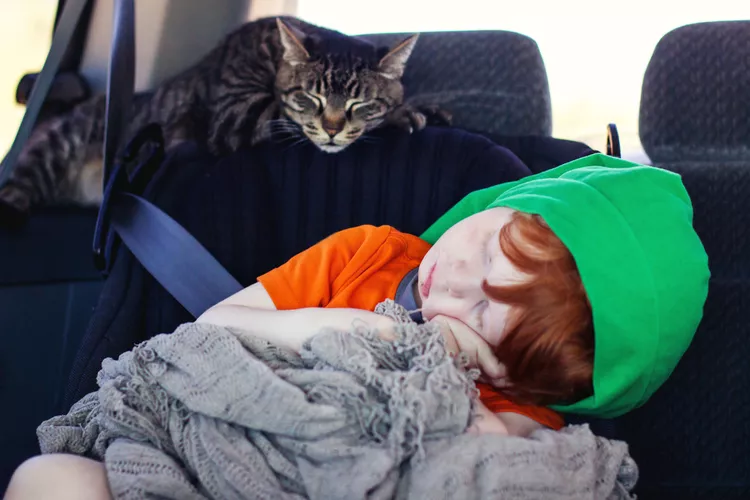
8 Tips to Help Cats Enjoy Car Travel
Cats are creatures of habit, and they hate to travel. Learn tips to prepare them for travel in the car, whether going to the vet or on vacation.
Common Causes of Mucus in Dog Poop
Seeing mucus in your dog's poop can be concerning to a dog owner. Here are common causes and treatment of mucus in a dog's stool.
Is Shrimp Bad For Dogs?
Shrimp can be a healthy, nutritional food for people but can dogs eat them, too? What are the main concerns with feeding shrimp to your dog?
Can Dogs Eat Grapes?
Are grapes safe for dogs? Grapes and raisins can cause serious toxicity in dogs. Find out what to do if your dog eats grapes.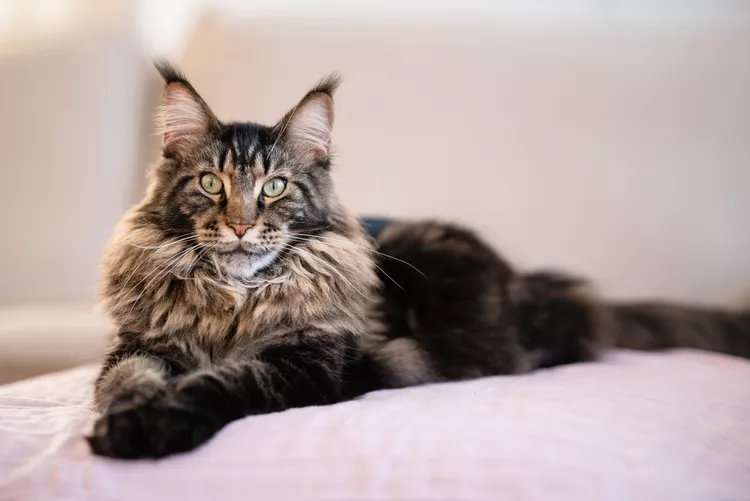
Maine Coon Cat: Breed Profile, Characteristics & Care
The Maine Coon cat is of the largest cat breeds in the world. These amiable, gentle cats make great companions. Learn about the Maine Coon cat breed's appearance, temperament, health, and care needs.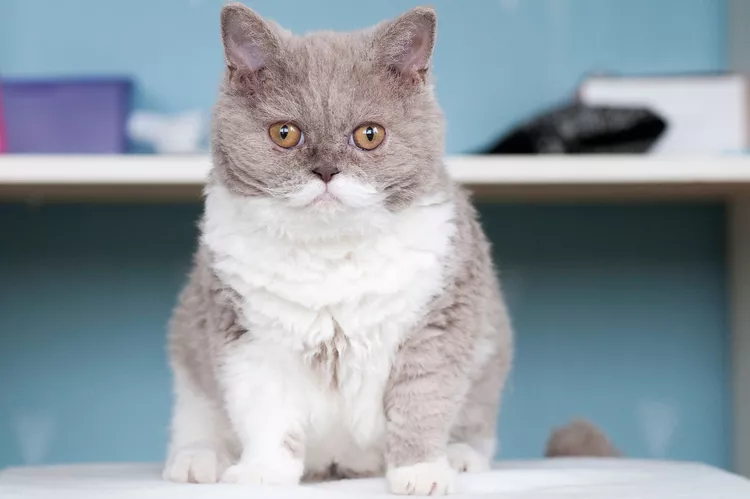
Selkirk Rex: Cat Breed Profile, Characteristics & Care
The Selkirk Rex is a charming cat with a tousled coat and a loving, laid-back personality. Learn about the Selkirk Rex breed.
How to Stop Your Cat From Chewing Electrical Cords
Cats are known to pounce and attack inanimate objects, like electrical cords. Learn how to prevent your cat from ambushing objects that may harm it.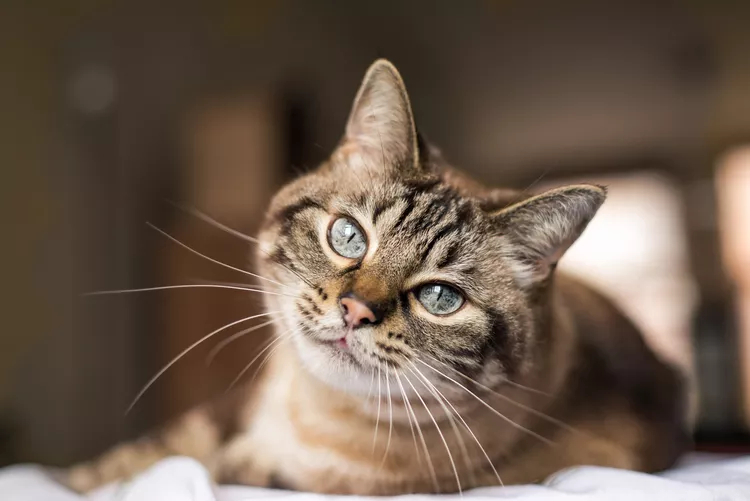
What Do Cats Think About?
Have you ever wondered what cats think about? A number of studies have explored cat behavior and feline cognition, but there's still more to learn.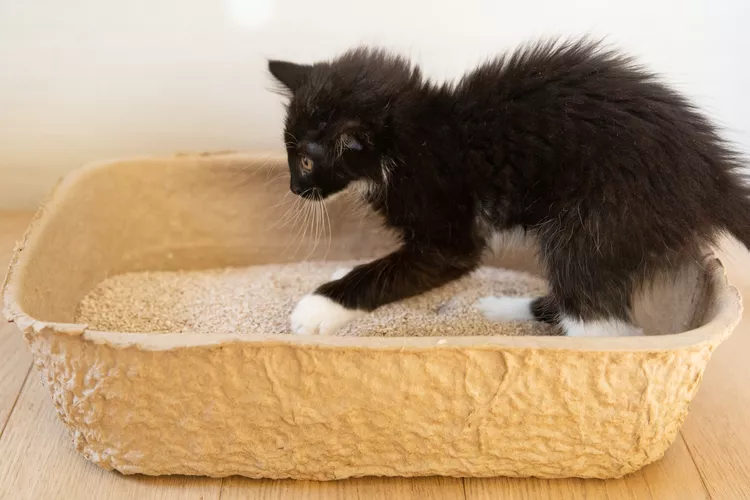
Training Your Kitten to Use the Litter Box
Bringing home a new kitten means they need to learn how to properly use a litter box. Discover how to successfully litter box train your kitten.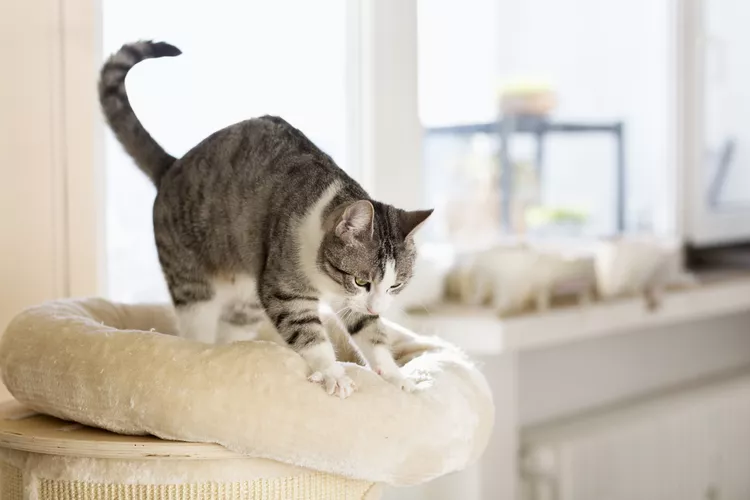
Why Do Cats Knead?
Kneading is a common behavior in cats of all ages. Learn why cats "make biscuits" and what it means for you, your cat, and all your blankets.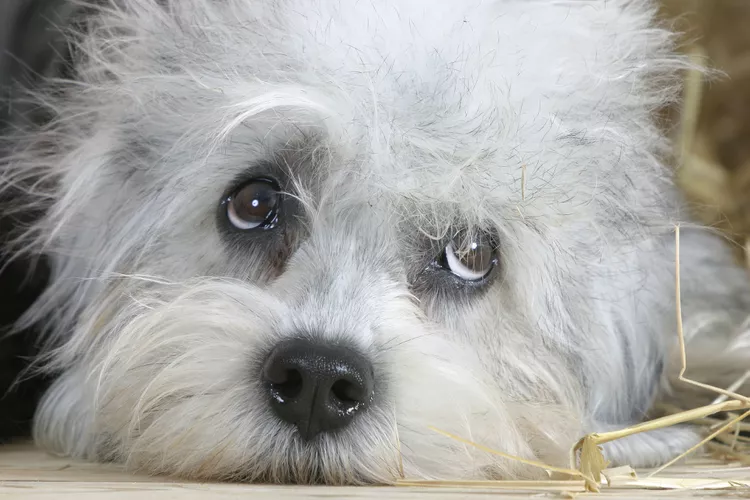
Dandie Dinmont Terrier: Dog Breed Characteristics & Care
Learn about the Dandie Dinmont Terrier, a silky dog breed with a signature puff of hair atop its head and a friendly, companionable personality.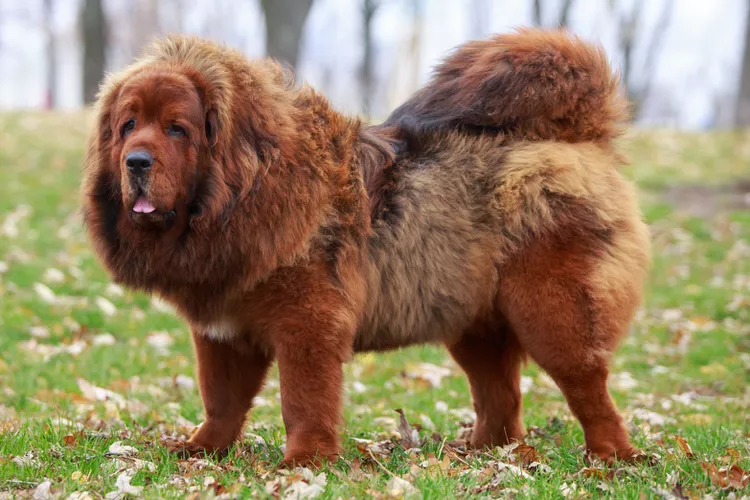
Tibetan Mastiff: Dog Breed Characteristics & Care
Learn about the Tibetan mastiff, an ancient guardian dog breed. This breed is known for their massive stature, flowing mane, and protective personality.
4 Reasons Why Your Dog Licks Their Butt
Butt-licking in dogs can be a part of normal grooming, but excessive butt-licking is not normal. Read about the most common reasons for this behavior.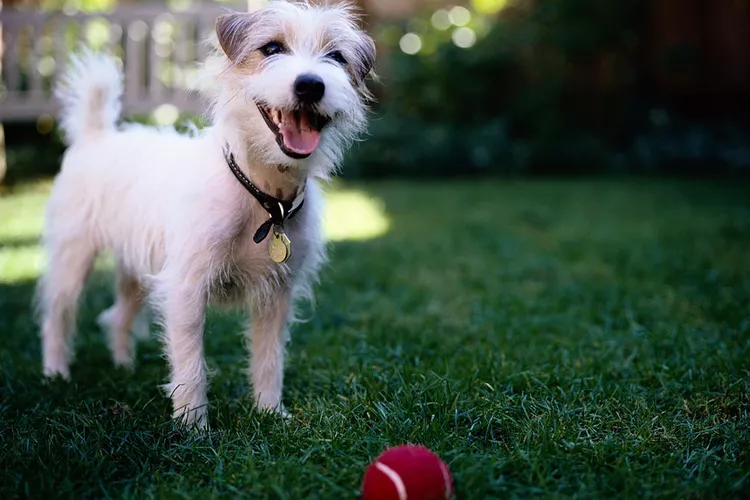
How to Teach Your Dog the "Leave It" Command
Training your dog the "leave it" command is a great way to instill self-control. Learn how to teach your dog to not pick things up from the ground.
How to Solve Your Dog's Fear of Car Rides
Is your dog scared of car rides? This fear of riding in cars is common. Learn why your dog is scared of car rides and how to help conquer this fear.
Can Dogs Get Depression? How to Help Your Sad Dog
Can dogs get depression? Learn about the signs of depression in dogs and find out how to help your sad dog.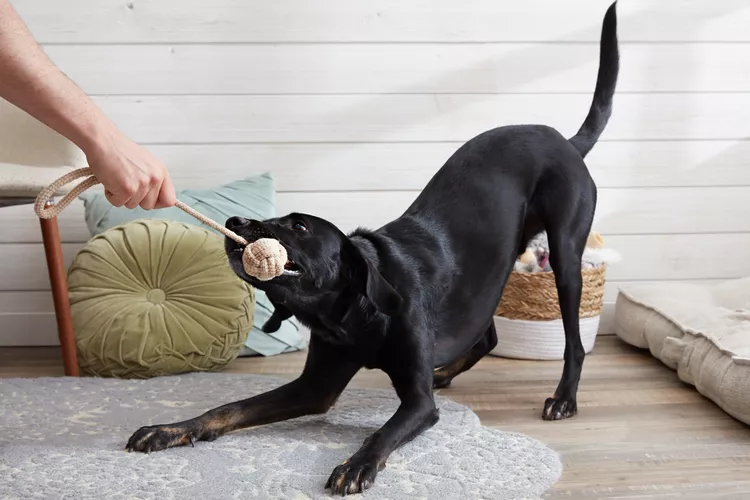
How to Play Tug of War With Your Dog
Many dogs love to play tug of war, and it's a healthy game that provides great exercise. Learn the best way to safely play tug of war with your dog.